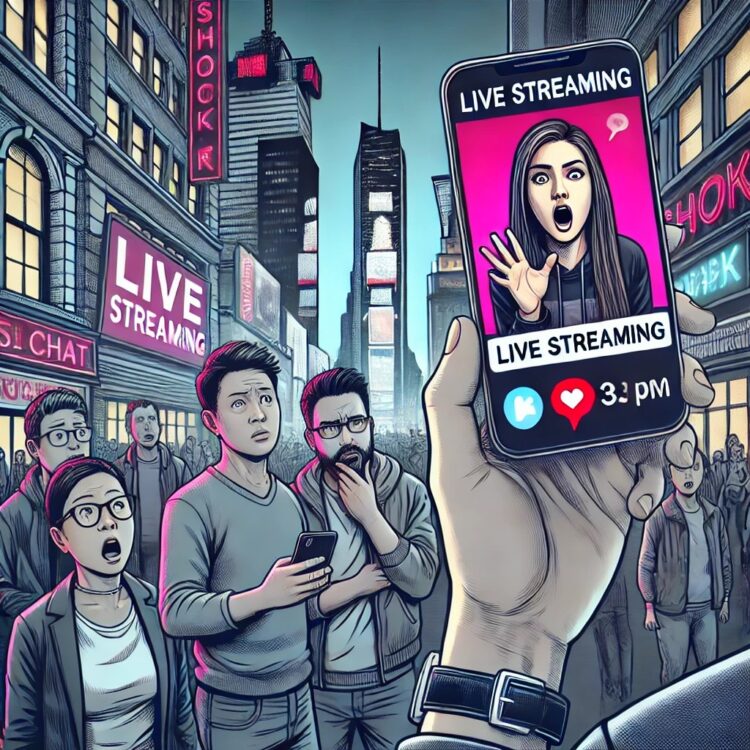
In the digital age, the pursuit of online fame has led some content creators to engage in provocative and offensive behaviour, aiming to capture attention and increase viewership. A notable example is Johnny Somali, whose controversial actions in various countries have sparked widespread criticism and legal repercussions. This essay examines the societal impact of such “shock streamers” and explores the potential legal breaches they might encounter under Australian law.
The Phenomenon of Shock IRL Streamers
Shock streamers produce content designed to provoke strong emotional reactions, often by violating social norms or engaging in offensive conduct. Their primary objective is to generate attention, increase followers, and monetise their online presence. However, this quest for virality often comes at the expense of decency and respect for cultural sensitivities.
Case Study: Johnny Somali
Johnny Somali has become notorious for his disruptive and offensive content, gaining infamy through provocative live streaming. His videos often involve antagonising locals, mocking cultural traditions, and making inflammatory comments about sensitive historical events. These actions have led to widespread condemnation and legal consequences in multiple countries.
One of the most controversial aspects of Johnny Somali’s online presence is his apparent disregard for cultural sensitivity. In Japan, for example, he was arrested for trespassing and harassment after deliberately provoking locals and disrespecting social customs. His behaviour was widely criticised, with many calling for stricter regulations on foreign live streamers exploiting public spaces for content. Similarly, in South Korea, he faced legal action after making racially charged remarks and disturbing the peace.
A key concern regarding shock streamers like Johnny Somali is their impact on local communities. By engaging in disruptive antics, they contribute to negative stereotypes and foster resentment towards foreign visitors. Their actions can also lead to safety risks, as their provocations sometimes escalate into physical confrontations.
From a legal standpoint, Johnny Somali’s activities highlight the growing challenges of regulating online behaviour that transcends national borders. Many countries, including Australia, have laws against public nuisance, inciting racial hatred, and disseminating offensive material. If he were to engage in similar behaviour in Australia, he could potentially face legal consequences under statutes such as the Criminal Code and the Racial Discrimination Act.
Ultimately, the case of Johnny Somali serves as a warning about the consequences of prioritising online engagement over ethical responsibility. His actions demonstrate the risks of seeking internet fame through controversy, as well as the broader implications for public order and cross-cultural relations.
Societal Impact
The behaviours exhibited by shock streamers like Johnny Somali have several detrimental effects on society:
- Erosion of Cultural Respect – Their actions trivialise significant historical events and cultural symbols, leading to public outrage and deepening cultural misunderstandings.
- Promotion of Antisocial Behaviour – By broadcasting offensive content, they may encourage imitation, normalising disrespectful conduct and desensitising audiences to inappropriate behaviour.
- Undermining Social Cohesion – Such content can exacerbate social tensions, fostering division and hostility within communities.
Legal Implications in Australia
In Australia, the actions of shock streamers can lead to legal consequences under various laws:
- Online Content Regulation – The Online Safety Act 2021 strengthens protections against online harm, addressing abusive behaviour and harmful content. The eSafety Commissioner has the authority to enforce compliance and issue penalties.
- Racial Vilification Laws – The Racial Discrimination Act 1975 makes racially motivated offensive behaviour unlawful. This includes public acts that are likely to offend, insult, humiliate, or intimidate based on race, colour, or national or ethnic origin.
- Criminal Offences – Acts involving the transmission of offensive material or content that incites violence can lead to criminal charges. Individuals have been prosecuted for sharing extremist content, highlighting the legal risks associated with disseminating harmful material online.
Conclusion
While the digital landscape offers vast opportunities for creativity and expression, it also necessitates a responsibility to uphold societal values and legal standards. Shock streamers who prioritise clicks over respect and legality not only risk legal repercussions but also contribute to societal harm by promoting divisive and offensive content. It is imperative for both content creators and consumers to foster an online environment that balances freedom of expression with respect for cultural sensitivities and legal boundaries.
Michael J. Tyler